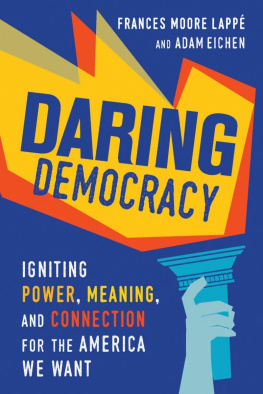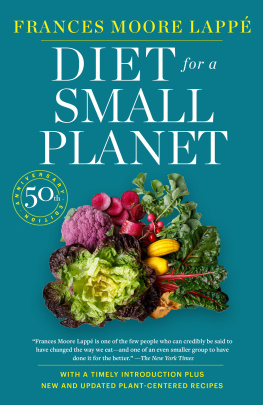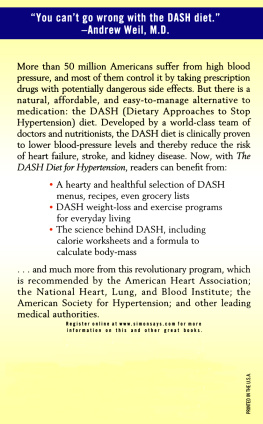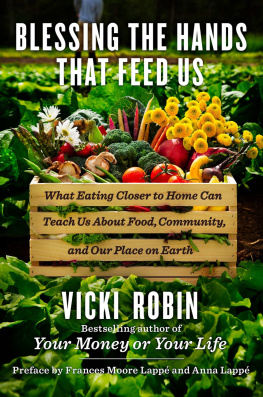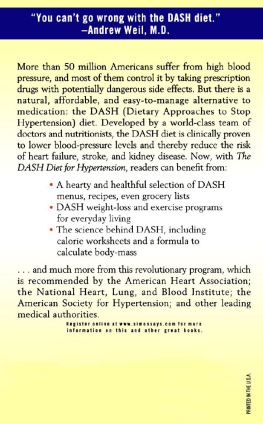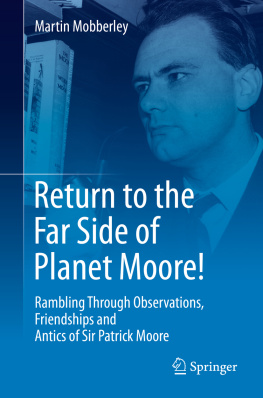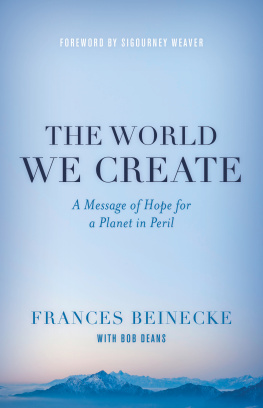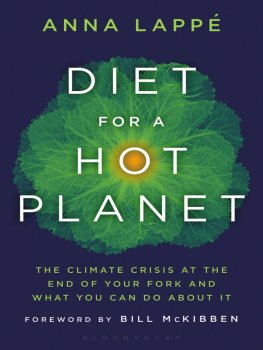Frances Moore Lappe - Diet for a Small Planet
Here you can read online Frances Moore Lappe - Diet for a Small Planet full text of the book (entire story) in english for free. Download pdf and epub, get meaning, cover and reviews about this ebook. year: 2011, publisher: Ballantine Books, genre: Children. Description of the work, (preface) as well as reviews are available. Best literature library LitArk.com created for fans of good reading and offers a wide selection of genres:
Romance novel
Science fiction
Adventure
Detective
Science
History
Home and family
Prose
Art
Politics
Computer
Non-fiction
Religion
Business
Children
Humor
Choose a favorite category and find really read worthwhile books. Enjoy immersion in the world of imagination, feel the emotions of the characters or learn something new for yourself, make an fascinating discovery.

- Book:Diet for a Small Planet
- Author:
- Publisher:Ballantine Books
- Genre:
- Year:2011
- Rating:5 / 5
- Favourites:Add to favourites
- Your mark:
- 100
- 1
- 2
- 3
- 4
- 5
Diet for a Small Planet: summary, description and annotation
We offer to read an annotation, description, summary or preface (depends on what the author of the book "Diet for a Small Planet" wrote himself). If you haven't found the necessary information about the book — write in the comments, we will try to find it.
Diet for a Small Planet — read online for free the complete book (whole text) full work
Below is the text of the book, divided by pages. System saving the place of the last page read, allows you to conveniently read the book "Diet for a Small Planet" online for free, without having to search again every time where you left off. Put a bookmark, and you can go to the page where you finished reading at any time.
Font size:
Interval:
Bookmark:
Acknowledgments
In the first edition of this book I included a special acknowledgment to my parents. As I appreciate them even more today than I did ten years ago, I would like to repeat those words: I wish to thank my parents, John and Ina Moore, who, by having always set the finest example of critical openness to new ideas, made this inquiry possible.
I am indebted to Nick Allen, of the Institutes staff, for his support for this project from its inception and for his inspired and very significant editorial contribution.
Mary Sinclair, Cindy Crowner, and Perri Sloane each contributed cooking talent and other skills to improve the recipes in this book and test the many contributions sent in from around the country. For testing and improving recipes I also appreciate the help of Elizabeth Rivers, Julia Rosenbaum, Claire Greensfelder, Myra Levy, Charles Varon, Katie Allen, Vince Bielski, Elinor Blake, Maria Torres McKay, and the Davis, California, Food for All groupespecially Laurie Rubin.
Special thanks go to Jennifer Lovejoy and JoNina Abron, who handled many of my Institute responsibilities so that I could be free to work on this book.
Debbie Fox was the loyal and talented typist of most of this manuscript. Her good humor and her willingness to put up with umpteen drafts will never be forgotten.
Research for this book depended on the help of dozens of people. My special thanks go to Sandy Fritz, Jenny Robinson, and John Moore. I also appreciated the help of Mort Hantman, Tracey Helser, Jim Wessel, Erik Schapiro, David Kinley, Vince Bielski, and Fred Brauneck.
This book benefited greatly from the valuable suggestions of friends and colleagues around the country. I am indebted to Michael Jacobson of the Center for Science in the Public Interest, Marty Strange of the Center for Rural Affairs, William Shurtleff of the Soyfoods Center, to Judy Stone, Robert Greenstein, and Steve Daschle of the Project on Food Assistance and Poverty, to Risk Weissbourd, Cheryl Rogers, and Tom Joe of the Center for the Study of Welfare Policy of the University of Chicago, and to Bard Shollenberger of the Community Nutrition Institute. I also appreciate the time and thought given to this book by Joan Gussow, Nevin Scrimshaw, Isabel Contento, Keith Akers, Robin Hur, Alex Hershaft, Georg Borgstrom, Douglas McDonald, Donald R. Davis, Stan Winter, Jim Spearow, and V. James Rhodes.
I would also like to thank those to whom I am indebted for recipe sections in the first two editions of this book. Many of the recipes they contributed or helped to develop remain in this edition. First, Ellen Ewald who back in 1970 helped acquaint me with the unknown world of whole foods. Second, Susan Kanor whose special kitchen touch and hard work made developing the recipes for the second edition a great adventure.
For other recipes that I have retained in this new book, I am grateful to Barbara Peter, Carol Ackerman Albiani, Sandye Carroll, Diane Coleman, Nancy Posselt, Jackie Potts, Paul Prensky, Joy Gardner, Nancy Meister, Robin McFarlane, and Jamie Seymour.
For their ideas and editorial suggestions I also want to thank Joseph Collins, Charles Varon, Regina Fitzgerald, Jess Randall, and my parents, John and Ina Moore.
And I appreciate all those at the Institute who put up with me during the period of stress to meet this deadline: Gretta Goldenman, JoNina Abron, Joseph Collins, David Kinley, Jim Wessel, Nick Allen, Jess Randall, Annie Newman, and Diana Dillaway.
Finally, I am grateful to my agent, Joan Raines, for her strong support for my work.
Also by Frances Moore Lappe
Published by Ballantine Books:
GREAT MEATLESS MEALS
FOOD FIRST
WHAT TO DO AFTER YOU TURN OFF THE TV
REDISCOVERING AMERICAS VALUES
- Ewald, Ellen, Recipes for a Small Planet. Ballantine, 1973. A wealth of creative complementary protein recipes.
- Hewitt, Jean, The New York Times Natural Foods Cookbook. Avon, 1972. Highly recommended by friends.
- Hunter, Beatrice Trum, The Natural Foods Cookbook. Pyramid, 1961. My early bible. Just reading through all the incredible ideas is mind-expanding!
- Katzen, Mollie, Moosewood Cookbook. Ten Speed Press, P.O. Box 7123, Berkeley, Calif. 94707. Simple and elegant dishes.
- Robertson, Laurel, Carol Flinders, and Bronwen Godfrey, Laurels Kitchen. A Handbook for Vegetarian Cookery and Nutrition. Bantam Books, 1976. A classic.
- Thomas, Anna, The Vegetarian Epicure. Vintage, 1972. Elegant dishes.
- Schandler, Michael and Nina, The Complete Guide and Cookbook for Raising Your Child as a Vegetarian. Schocken Books, 1981. Also includes advice for pregnant and breast-feeding women.
- Shurtleff, William, and Akiko Aoyagi, The Book of Tofu (1979) and The Book of Miso (1981), Ballantine Books, and the Book of Tempeh, Harper & Row. Much more than excellent cookbooks, these provide fascinating information about the cultures that developed these versatile foods. For more information about soyfoods and a catalogue of publications, send a long, self-addressed stamped envelope to The Soyfoods Center, P.O. Box 234, Lafayette, CA 94549.
It is hard to sustain hope and energy for change when we are bombarded each day by the media. War, crime, AIDS, poverty, environment. We easily feel overwhelmed. To develop an understanding of how ones own efforts can make a difference, to learn about work for positive change, we need to expand the news and analysis coming into our lives. We can select analyses as well as news about citizen initiatives that would rarely appear in the daily paper or on the evening news.
Here are some reading suggestions you might consider from the two organizations I have helped to found:
From the Institute for the Arts of Democracy, 36 Eucalyptus Lane, Suite 100, San Rafael, California 94901:
Building Citizen Democracy: Concepts and Citizen Arts for Renewing Public Life. A lively booklet presenting the philosophy behind citizen democracy and its practical implications for renewing public life. Includes questions for group discussion. Frances Moore Lapp $4.00
Rediscovering Americas Values. Written as a lively dialogue about freedom, democracy, and fairness, this book is sparking discussion about the values that shape our society. Frances Moore Lappe Paperback, $12.95 Please write for a complete list of publications and membership information.
From the Institute for Food and Development Policy (Food First), 145 Ninth Street, San Francisco, CA 94103.
World Hunger: Twelve Myths, 208 pages with photographs. A good next-step for understanding world hunger after reading Diet for a Small Planet. It also includes a resource guide. Frances Moore Lapp and Joseph Collins, 1986. Paperback, $9.95
Alternatives to the Peace Corps: A Directory of Third World and U.S. Volunteer Opportunities. Brings together resources and information that will help the prospective volunteer find an appropriate placement abroad. 1991 Edition. $6.95
Dont be Afraid Gringo: A Honduran Woman Speaks from the Heart. A gripping narrative that tells about courage and hope in face of injustice and violence, it captures powerful lessons about the causes of third world poverty and the role of U.S. foreign policy. Elvia Alvarado. Translated and edited by Medea Benjamin, with photographs by Susan Meiselas. 1987. $7.95
Taking Population Seriously. Explores the critical lessons to be learned from third world societies most successful in bringing down birth rates. Frances Moore Lapp and Rachel Schurman. 1990. $7.95
Next pageFont size:
Interval:
Bookmark:
Similar books «Diet for a Small Planet»
Look at similar books to Diet for a Small Planet. We have selected literature similar in name and meaning in the hope of providing readers with more options to find new, interesting, not yet read works.
Discussion, reviews of the book Diet for a Small Planet and just readers' own opinions. Leave your comments, write what you think about the work, its meaning or the main characters. Specify what exactly you liked and what you didn't like, and why you think so.

